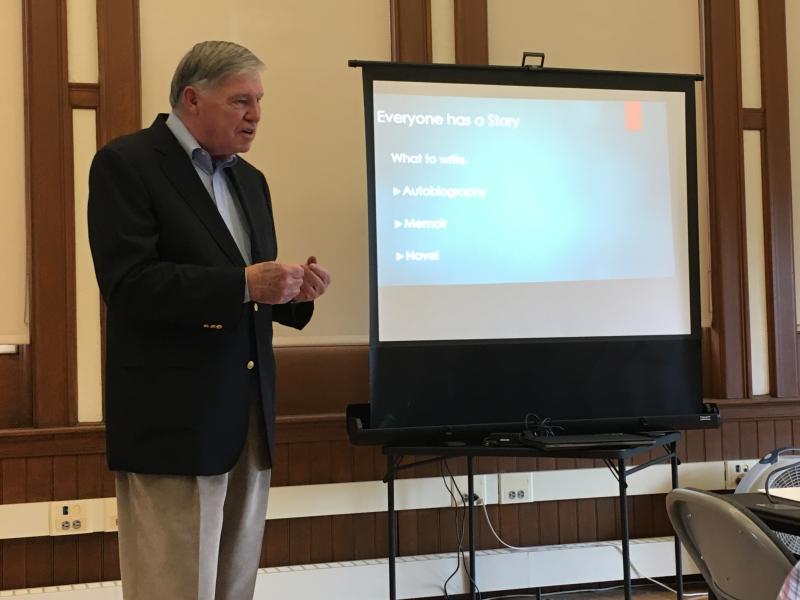Publisher offers secrets to scribbling your life story
Have you ever thought about writing a book?
It may seem like a daunting task, but Henry Quinlan from Omni Publishing Co. in West Wareham has some tips to help.
Quinlan visited the Mattapoisett Council on Aging on Thursday afternoon to share some of what he’s learned in 40 years in the publishing business. His number one lesson? Everyone has a story and it’s always worth telling.
This is something Quinlan learned firsthand. He’s worked with astronaut Wally Schirra and Dorothy Ruth Pirone, Babe Ruth’s daughter, on their autobiographies.
“Nothing energizes people like writing their story,” he said.
Sitting down to write about your life has many benefits, according to Quinlan. The process opens writer up to resolving conflicts, reevaluating memories, leaving a legacy, gaining a renewed sense of purpose and leaving behind lessons learned for those who come later.
Essentially, there are three ways to write about your life: through an autobiography, a memoir or a novel. However, Quinlan warns against a novel unless you’re a particularly skilled writer.
Whichever path you decide to go, it’s important to start with a timeline for your project. Then, create an outline, introduce yourself to the readers, be comfortable with the things you write and always remember to fact check.
Expect to publish your first book yourself. “For the first time, self-publishing is more common than being published by publishers,” he said, noting that publishers are often overwhelmed with thousands of manuscripts at any one time.
However, Quinlan’s most important piece of advice is to be yourself.
“You have to know your voice,” he said. “You are who you are.”
Ultimately, whichever way you decide to write your book, Quinlan thinks the most important thing is just to do it.
“I believe everyone should tell their story," he said.
Here are a few more tips from Quinlan when writing your book:
- Determine who your audience is.
- Make sure to use the power of anecdote.
- Focus on the writing.
- When dealing with a painful memory, write that outside of your manuscript, let it sit for a few days and then go back to it and fix it. Repeat as needed.
- Make sure you have a good first line to grab readers’ attention.
- The title can be critical to the success of the book.
- If you need to fund your book, try Kickstarter or Indiegogo.















